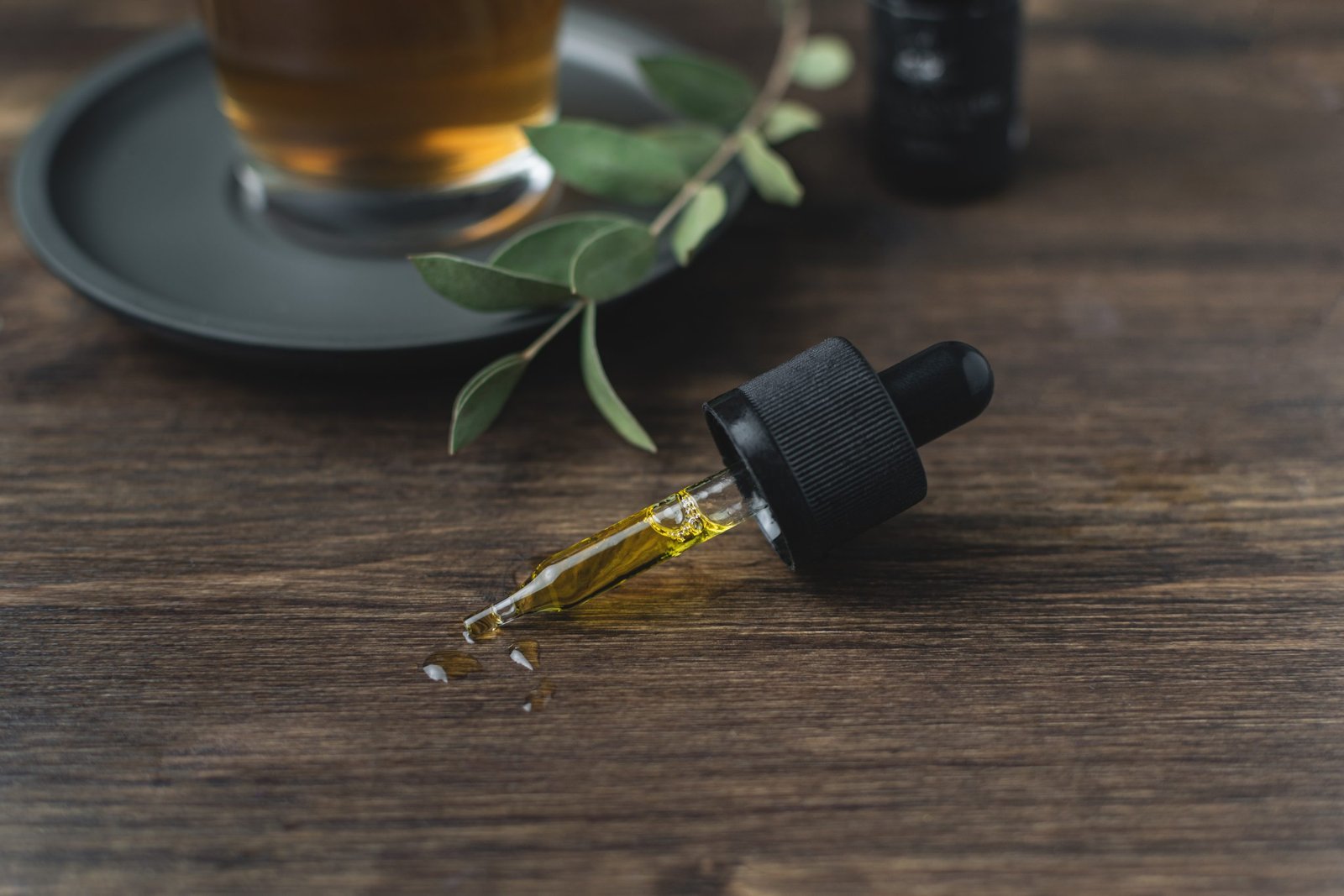
CBD and Depression: What You Need to Know
Written: editor | June 21, 2023
Understanding Depression and Its Symptoms
How CBD Works
CBD, or cannabidiol, is a compound found in the cannabis plant. It interacts with the body’s endocannabinoid system, which regulates functions like mood, sleep, appetite, and cbd. Research suggests that CBD may help alleviate depressed mood by influencing these systems.
CBD doesn’t directly bind to receptors but rather enhances the signaling of serotonin receptors in the brain. This can potentially lead to an increase in serotonin levels, which is often associated with improved mood and reduced feelings of anxiety and depression. It may also have anti-inflammatory effects on the brain, offering further potential benefits for individuals struggling with depression and cbd.
Potential Benefits
One of the key advantages of using CBD for depression is its relatively low risk of side effects compared to traditional antidepressant medications. While prescription drugs can cause a range of adverse reactions in patients such as weight gain or sexual dysfunction, studies have shown that CBD generally has fewer side effects.
Moreover, some patients find relief from their depressive symptoms without experiencing psychoactive effects commonly associated with cbd use. This means patients can potentially benefit from its therapeutic properties without feeling “high.” However, it’s important to note that more research is needed to fully understand how effective and safe CBD is for treating depression.
Overview of CBD and Its Properties
Understanding CBD
CBD treatment for depression has gained attention due to its potential as a natural remedy. CBD, or cannabidiol, is a compound found in the cannabis plant. It is non-psychoactive, meaning cbd doesn’t produce the “high” associated with marijuana use. Instead, cbd interacts with the body’s endocannabinoid system to promote balance and homeostasis.
Research studies suggest that CBD may have antidepressant properties by influencing serotonin receptors in the brain. Serotonin plays a crucial role in regulating mood and emotions, making it an important target for addressing depression symptoms.
Mechanism of Action
When consumed, CBD interacts with serotonin receptors, potentially increasing serotonin levels in the brain. This could lead to improvements in mood and reduced feelings of sadness or hopelessness commonly associated with depression.
Furthermore, CBD also has anti-anxiety effects which can be beneficial for individuals dealing with both depression and anxiety disorders simultaneously. By reducing anxiety levels, CBD may indirectly alleviate some depressive symptoms in treatment studies with respondents.
The Science Behind CBD as a Potential Treatment for Depression
How CBD Interacts with the Brain
CBD interacts with the endocannabinoid system in the brain, specifically targeting receptors such as CB1 and CB2. These receptors are involved in regulating mood, emotions, and cognitive functions. By influencing these receptors, CBD can potentially impact serotonin levels, which are crucial for managing depression.
The endocannabinoid system helps regulate stress responses and emotional processes. When someone experiences depression, there may be an imbalance in their endocannabinoid system. CBD might help restore this balance by modulating the activity of certain neurotransmitters associated with mood regulation.
Research Findings on CBD and Depression
Several studies have explored the potential of CBD as a treatment for depression. For example, a 2018 review published in Neurotherapeutics suggested that CBD could have rapid-acting antidepressant effects due to its impact on serotonin receptors. Another study from 2020 indicated that CBD exhibited both rapid and sustained antidepressant-like effects in animal models.
- Pros:
- Non-addictive nature
- Fewer side effects compared to traditional antidepressants
- Cons:
- Lack of extensive human clinical trials
- Varying individual responses to CBD
Benefits of CBD for Mood Enhancement and Anxiety Reduction
Mood Enhancement
CBD has been shown in studies to have a positive impact on mood. It interacts with the body’s endocannabinoid system, which plays a crucial role in regulating mood, stress response, and emotional behavior. By influencing the endocannabinoid receptors, CBD can help alleviate feelings of sadness or low mood. This natural compound, CBD, is thought to promote a sense of calm and relaxation without causing the “high” often associated with cannabis.
Research studies suggest that CBD may be beneficial for individuals experiencing symptoms of depression by potentially boosting serotonin levels in the brain. Serotonin is a neurotransmitter known as the “feel-good” chemical because it contributes to feelings of well-being and happiness. By enhancing serotonin signaling, CBD could offer an alternative approach to improving mood for those struggling with depression.
Anxiety Reduction
One significant benefit of CBD is its potential to reduce anxiety levels. Many people turn to CBD as a natural remedy for managing anxiety due to its calming effects on both the mind and body. Studies have indicated that cbd may help reduce anxiety-related behaviors in conditions such as generalized anxiety disorder (GAD), social anxiety disorder (SAD), post-traumatic stress disorder (PTSD), and obsessive-compulsive disorder (OCD).
Furthermore, some users find relief from performance-related anxiety when using CBD before public speaking engagements or important meetings. The compound cbd’s ability to modulate activity in brain areas associated with anxiety could make it an appealing option for those seeking non-pharmaceutical interventions.
Personal Experiences and Case Studies on CBD for Depression
Positive Experiences
Many individuals have reported positive effects of using CBD for depression. Some have found that cbd helps alleviate their symptoms, leading to improved mood and a greater sense of well-being. For example, Sarah, who has been struggling with depression for years, noticed a significant reduction in her depressive episodes after incorporating CBD oil into her daily routine. She described feeling more relaxed and less anxious overall.
Moreover, various case studies have shown promising results in using CBD as a complementary treatment for depression. One study published in the Journal of Clinical Psychology found that participants who used CBD experienced a notable decrease in depressive symptoms compared to those who did not use it.
Considerations and Caution
While these experiences are encouraging, it’s essential to approach the use of CBD for depression with caution. Not everyone may respond to CBD oil in the same way, and individual results can vary widely. It’s crucial to consult with a healthcare professional before incorporating CBD into your treatment plan for depression.
While some studies suggest positive outcomes from using CBD, more research is needed to fully understand its efficacy and potential side effects when used specifically for treating depression.
Dosage and Administration of CBD for Optimal Results
Finding the Right Dosage
Finding the right dosage of CBD for depression can be a trial-and-error process. It’s crucial to start with a low dose and gradually increase it until you find the optimal amount that works for you. A general starting point for cbd is 20-40 mg per day, but some individuals may require higher doses to experience the desired effects. Factors such as body weight, metabolism, and the severity of depression can influence the ideal dosage.
CBD products come in various forms, including oils, capsules, edibles, and topicals. Each form, including cbd, has its own absorption rate and duration of effects. For instance, CBD oil taken sublingually tends to have a faster onset compared to edibles because it bypasses digestion.
Administration Methods
The administration method also plays a significant role in how quickly CBD alleviates symptoms of depression. Inhalation through vaping or smoking allows for rapid absorption of CBD into the bloodstream but comes with potential risks to lung health. On the other hand, oral ingestion results in slower onset but offers longer-lasting effects.
When using CBD for depression management, consistency is key. Establishing a regular dosing schedule helps maintain steady levels of CBD in your system and promotes more consistent outcomes over time.
Legal Considerations and Safety of Using CBD for Depression
Legal Status
The legal status of CBD varies by state, so it’s crucial to be aware of the laws in your area. Some states have legalized the use of CBD, while others have restrictions or outright bans. Understanding the legal landscape can help you navigate the purchase and use of CBD products for depression.
It’s essential to ensure that any CBD product you use complies with local regulations. This means checking that it contains permissible levels of THC and cbd, the psychoactive compound found in cannabis. By staying informed about the legality of CBD, individuals can avoid potential legal issues and access safe, compliant products.
Safety Considerations
When considering using CBD for depression, safety should be a top priority. While many people tolerate CBD well, it’s important to note that it can interact with certain medications. Consulting a healthcare professional before starting a regimen is advisable, especially if one is already taking prescription medications.
Furthermore, ensuring product quality is vital for safety when using CBD for depression. Opting for reputable CBD brands that provide third-party lab testing results can offer assurance regarding purity and potency. This helps mitigate potential risks associated with contaminants, misleading labeling, or cbd.
Alternative Treatments and Comparing Their Efficacy with CBD
Traditional Antidepressants
Traditional antidepressants, such as selective serotonin reuptake inhibitors (SSRIs) and tricyclic antidepressants, are commonly prescribed to manage depression. While these medications can be effective for some individuals, they often come with a range of side effects including weight gain, sexual dysfunction, and insomnia. It may take several weeks before their full benefits are felt.
For example:
- SSRIs like Prozac or Zoloft increase levels of serotonin in the brain to improve mood but can cause nausea, decreased libido, and CBD.
Psychotherapy
Psychotherapy is another common treatment for depression that involves talking through one’s feelings and concerns with a mental health professional. This approach aims to help individuals develop coping strategies and address underlying issues contributing to their depression symptoms.
For instance:
- Cognitive-behavioral therapy (CBT) helps patients identify negative thought patterns and replace them with healthier ones.
Exercise
Regular physical activity has been shown to have a positive impact on mood by releasing endorphins in the brain. Engaging in exercise also offers an opportunity for social interaction which can combat feelings of isolation often associated with depression.
Frequently Asked Questions
Is CBD an effective treatment for depression?
Yes, research suggests that CBD may help alleviate symptoms of depression by interacting with the body’s endocannabinoid system and influencing serotonin receptors. However, individual responses can vary, so it’s essential to consult a healthcare professional before using CBD for depression.
How does CBD work to improve mood and reduce anxiety?
CBD interacts with various receptors in the brain and nervous system, including serotonin and GABA receptors, which play a role in regulating mood and anxiety. By modulating these pathways, CBD may help promote feelings of relaxation and well-being.
What is the recommended dosage of CBD for treating depression?
Dosage recommendations for cbd can vary based on factors such as individual tolerance, weight, metabolism, and the specific product being used. It’s crucial to start with a low dose of cbd and gradually increase while monitoring your response. Consulting a healthcare provider can also provide personalized guidance.
Are there any potential side effects or risks associated with using CBD for depression?
While generally considered safe, some individuals may experience side effects such as fatigue, changes in appetite or weight, or gastrointestinal discomfort when using CBD. Interactions with certain medications are possible. Seeking professional medical advice, including cbd, is important before starting any new treatment regimen.
How does the efficacy of using CBD for depression compare to other alternative treatments?
Research comparing the efficacy of different treatments for depression and CBD is ongoing. While some studies suggest promising results for CBD in managing depressive symptoms, it’s essential to consider individual differences in response as well as potential interactions with other treatments. Consulting a healthcare provider can offer personalized insights into suitable options.



